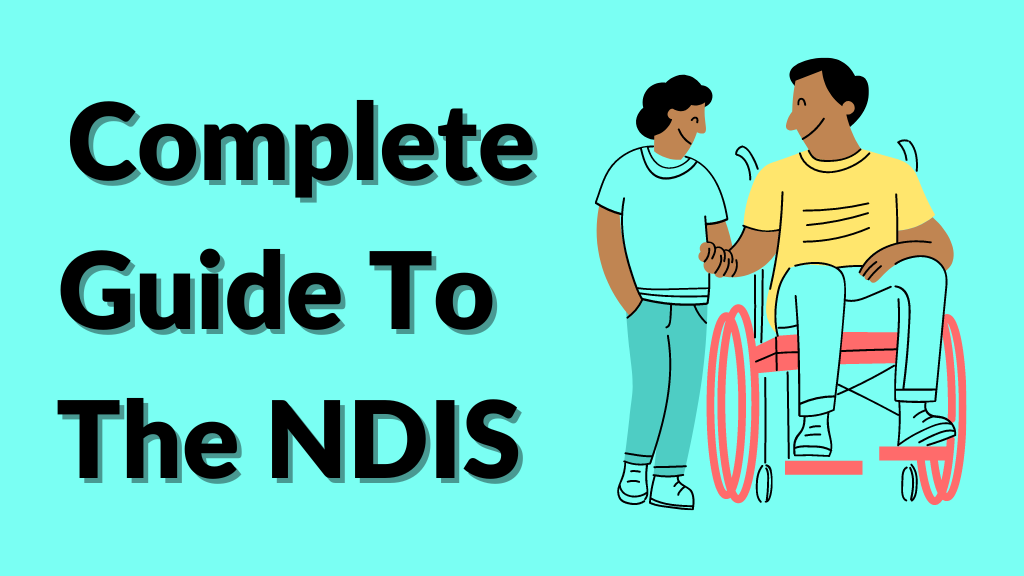Understanding NDIS: A Comprehensive Guide to the National Disability Insurance Scheme
Introduction to NDIS
The National Disability Insurance Scheme (NDIS) is a transformative program designed to provide support and assistance to individuals with disabilities in Australia. Enacted in 2013, the NDIS represents a significant shift in the approach to disability services, aiming to empower participants and enhance their quality of life. What is NDIS and how does it work?

How Does NDIS Work?
The NDIS operates on the principle of individualized funding and support. Unlike traditional disability services, where one-size-fits-all approaches were common, NDIS tailors its support to the unique needs and goals of each participant. This personalized approach allows individuals to have greater control over the services they receive, promoting autonomy and dignity.
Participant Eligibility and Access to NDIS
To access the NDIS, individuals must meet specific eligibility criteria. Generally, participants must be under the age of 65, an Australian citizen or hold a permanent visa, and have a permanent and significant disability that affects their ability to perform daily activities. Once deemed eligible, participants can apply for NDIS support.
Creating a NDIS Plan
Upon approval, participants, in collaboration with a planner, develop a personalized NDIS plan. This plan outlines the individual’s goals, aspirations, and the support required to achieve them. The participant has the flexibility to choose service providers and determine the frequency and nature of support.
Service Categories Covered by NDIS
The NDIS covers a broad range of services falling into several categories. These include support for daily living, community participation, transport, employment, and health and well-being. Participants can select services that align with their specific needs and goals, fostering a holistic approach to disability support.
Provider Registration and Quality Standards
For a service provider to deliver support under the NDIS, they must be a registered NDIS provider. Registration involves meeting strict quality and safety standards, ensuring that participants receive services of the highest standard. The NDIS Quality and Safeguards Commission oversee provider registration and compliance, reinforcing the commitment to delivering quality care.
Funding and Budget Management
Participants receive funding based on the goals outlined in their NDIS plan. This funding is not provided as a lump sum but is allocated to specific support categories. Participants can access their plan through the NDIS portal, allowing them to monitor their budget, track expenditures, and request plan reviews as needed.
Review and Flexibility
The NDIS recognizes that circumstances change, and goals may evolve. As such, participants have the opportunity to review their plans regularly. Reviews can be initiated by the participant or the planner, ensuring that the support provided remains relevant and effective.

Benefits of NDIS
The implementation of the NDIS brings about numerous benefits for both participants and the broader community. One of the key advantages is the shift from a welfare-focused model to an empowerment model. Participants are no longer passive recipients but active decision-makers in their support journey.
Enhanced Independence
By tailoring support to individual needs, the NDIS promotes independence. Participants are empowered to make choices about their daily lives, fostering a sense of autonomy that may have been lacking in traditional disability services.
Increased Access to Services
The NDIS expands the range of services available to participants. This inclusivity allows individuals to access a diverse array of supports, including those that may not have been traditionally considered in disability service provision.
Improved Quality of Life
Through personalized planning and support, the NDIS aims to improve the overall quality of life for participants. Whether through increased social participation, improved health and well-being, or enhanced access to education and employment opportunities, the NDIS strives to create positive outcomes.
Challenges and Criticisms
While the NDIS has brought about positive changes, it has not been without challenges and criticisms. Some argue that the scheme has been slow to respond to the diverse needs of participants, leading to delays in plan approvals and inadequate funding for certain individuals. What is NDIS and how does it work?
Implementation Challenges
The rollout of the NDIS faced initial implementation challenges, including workforce shortages, difficulties in provider registration, and delays in plan approvals. These issues impacted the timely delivery of services and contributed to frustrations among participants and their families.
Complexity of the System
Critics point to the complexity of the NDIS system, with its intricate planning processes and eligibility criteria. Some participants find it challenging to navigate the system effectively, leading to concerns about equitable access to the scheme.
Funding Gaps
There have been instances where participants feel that the allocated funding does not adequately cover their needs. This has led to calls for a more transparent and responsive approach to funding allocation to ensure that participants receive the support they require.
Conclusion
The National Disability Insurance Scheme represents a significant step forward in the provision of disability services in Australia. By prioritizing individual needs, goals, and autonomy, the NDIS seeks to empower participants and enhance their overall quality of life. While challenges exist, ongoing efforts to address implementation issues and refine the system aim to ensure that the NDIS continues to fulfill its promise of delivering person-centered and effective disability support.
In conclusion, the NDIS is a dynamic and evolving initiative that holds great potential to create positive change for individuals with disabilities and their communities. As the scheme continues to mature, it is expected that lessons learned from challenges will contribute to its refinement, making it an increasingly effective and inclusive model for disability support in Australia. https://ndiscommunitysupport.com.au/brisbane-ndis-supports-provider/




